Module 2
The Imperative (affirmative and negative)
Affirmative imperatives are used to motivate or force someone to do something while negative imperatives are used to prevent someone from doing something.
Examples:
1. Play out!
2. Speak up please!
3. Do your homework.
****************************
*To prevent someone from doing something, we add (Don't)
1. Don't run fast
2. Don't open this door
3.Don't smoke in the car.
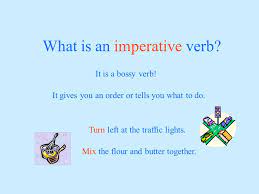
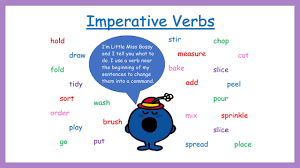
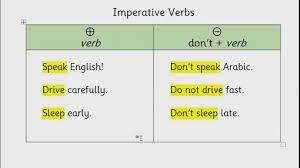
SB page 19/ exercise 1
1 Look at the pictures and complete the sentences with the words from the box.
| Walk / turns / plant /Don't play / take / start |
(1) Walk or (2) _______ the bus to school. 
(3) _______ off the water while you brush your teeth. 
(4) _______ video games all the time. 
(5) _______ trees or (6) _______ a vegetable garden. 
Answers; 1. Walk; 2. take; 3. Turn; 4. Don’t play; 5. Plant; 6. start
****************************************************
SB page 19 / exercise 2
Write sentences (a) and (b) in the corresponding column. Then add more examples of instructions from the text on page 18. Work in pairs.
Answers
a. negative; b. affirmative
Affirmative: Walk or take the bus to school; Reuse and recycle paper, glass, plastic and aluminium; Turn off the water; Turn off the lights; Plant trees or start a vegetable garden; Wear cool clothes in summer and turn down the air conditioning; In winter, wear warm clothes and turn down the heating.
Negative: Don’t play video games all the time.
************************************************************
SB page 19 / exercise 3
Complete this dialogue with the verbs in the correct form of the imperative.
| Get / wallk / don't throw / reuse / turn / Don't have |
|
Hisham: OK! Global warming is a big problem. But what can we do about it? Nawal: We can do a lot! For example: (1) Get up at 6 o’clock instead of 7 and (2) _______ to school! Don't go by car. Hisham: You’re crazy! Nawal: Of course I'm not! And we must save water, so have a shower. (3) _______ a bath. Hisham: Well. That sounds OK. And what about brushing my teeth? Nawal: Brush your teeth, but (4) _______ off the water while you brush them. And (5) _______ away paper or plastic! Hisham: What do you mean? I can’t use old paper! I can’t use old plastic cups! Nawal: Of course you can! (6) _______ them! |
Answers: 1. Get; 2. walk; 3. Don’t have; 4. turn; 5. don’t throw; 6. Reuse
*******************************************************
The Present Simple with adverbs of frequency
Adverbs of frequency are often used to indicate routine or repeated activities, so they are often used with the present simple tense.
If a sentence has only one verb, place the adverb of frequency in the middle of the sentence so that it is positioned after the subject but before the verb.
For example: Tom never flies.
*We make question by using (How often)
Form :
How often + do / does+ subject + v (base) + C?
How often do you read novels?
I often read novels . / I read novels twice a week.
*********************************
How often does Sam go to school?
He usually goes to school.
**********************************
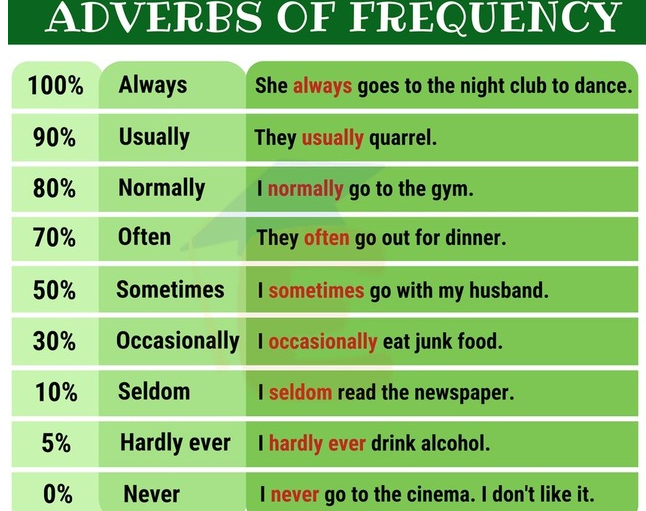
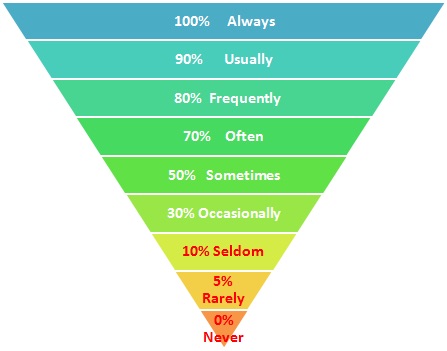
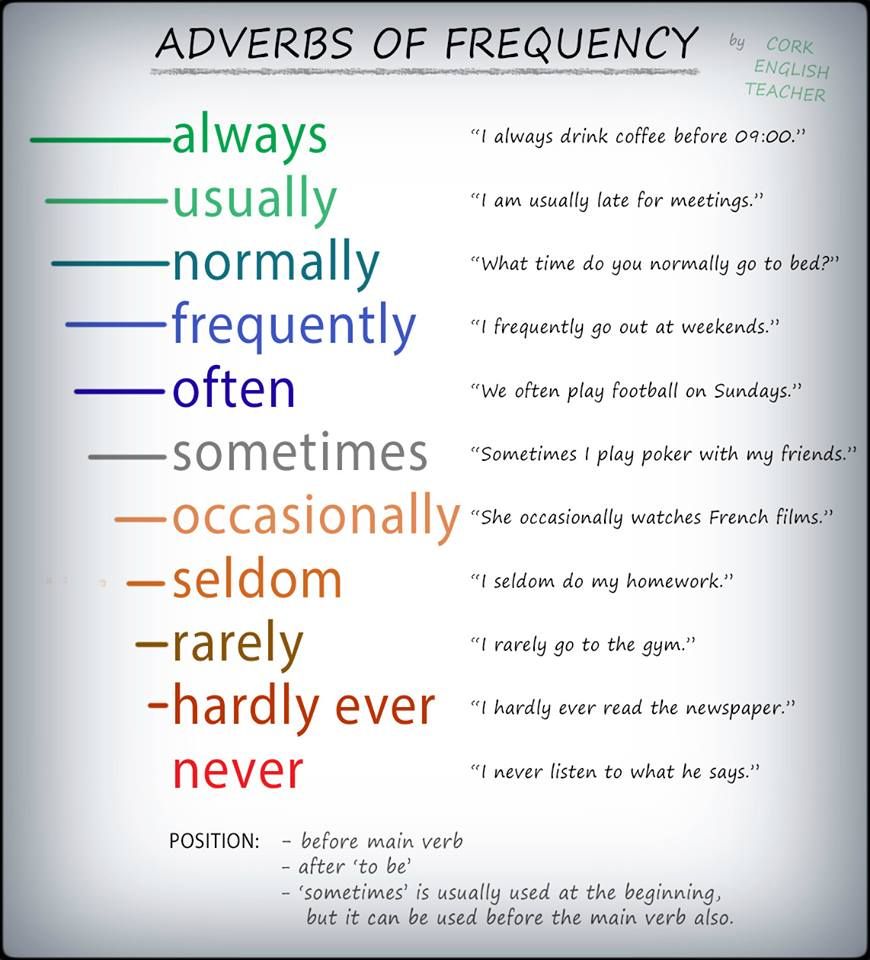
SB page 20 / exercise 5
In groups of fi ve, read this questionnaire and write down your answers
Student's own answers.
*************************************
SB page 20 / exercise 6
Now complete the table below with the adverbs always, sometimes or never.
How often do you …
I ______________ turn off the water while I brush my teeth
I ______________ walk to school.
My family ______________ recycle or reuse paper cups and supermarket bags.
My brother/sister ______________ uses a bicycle to come to school.
I ______________ turn off the lights when I leave a room.
Students’ own answers
****************************************************
SB page 20 / exercise 7
▼ Over to you . . .
7 Work in pairs. Go back to pages 18 and 19 and make a list of actions we can do to fi ght global warming. Then ask questions in pairs with How often do you … ?
Example
A:How often do you turn off the computer?
B: I always do.
Answers
Answers may include the following ways to slow down global warming: • walking to school • saving water (turning off the water while brushing, having a quicker shower …) • adjusting the thermostat temperature of water heaters and air conditioning systems according to the season • recycling plastic and paper.
*********************************************************